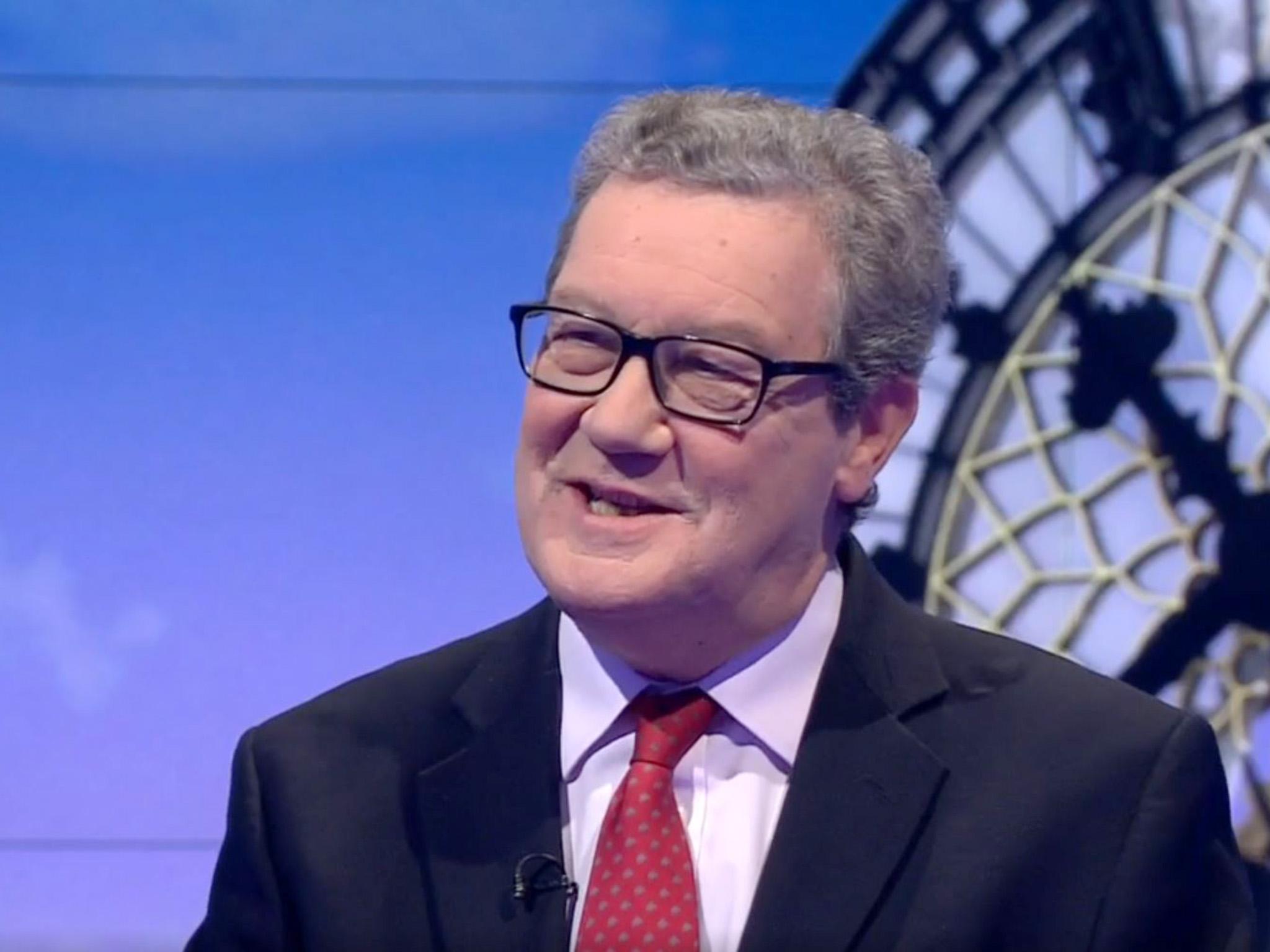Osborne: Scrapping EU trade deals to look elsewhere would be 'biggest act of protectionism in British history'
Tells Andrew Marr 'we can't tow ourselves out into the middle of the Atlantic'

Former Chancellor George Osborne has said that scrapping existing European trade arrangements for new deals elsewhere after Brexit would be the biggest act of protectionism in British history.
He said that maintaining close trading links with European neighbours like Germany and France was "in Britain's national interest, our economic interest, our security interest".
Pointing to the fall in the value of the pound following the referendum, Mr Osborne said that distancing the country from Europe leads to "the world betting against Britain" in the financial markets.
Asked about the UK's ties in the European Economic Area and the single market, he said: "The grass may be greener outside of those arrangements, and we may be able to conduct new free trade deals with Australia and the United States and so on, but that shouldn't come at a price of giving up the existing free trade arrangements we have with Germany and France.
"Whilst I'm a massive fan of trade deals with Australia, I want to do trade deals with China - quite controversial in this country, and will prove to be so, many of these trade deals when they come to Parliament - but there's no point saying you want all of that trade, but you don't want to do the trade we already do with countries like Germany or France, which of course are absolutely central trading partners of ours.
"You can't say we're a beacon of free trade in the world and then the main thing you achieve is a huge act of protectionism, the biggest in British history. We can't tow ourselves out into the middle of the Atlantic - we have to make this relationship work.
"We have got a very competitive economy, we've got really successful entrepreneurial businesses, we've got a great workforce. Let's make sure we have close trading relationships with our key neighbours."
Australia's high commissioner to the UK, Alexander Downer, told the BBC's Sunday Politics he did not think negotiating a free trade agreement between the two countries would take "very long".

He said: "It's about political will. A free trade agreement is going to be no problem unless you want to protect particular sectors of your economy.
"With the UK I don't think - you can't be sure - but I don't think a free trade agreement would take very long with the UK because the UK wouldn't want to put a lot of obstacles in the way to Australia and we wouldn't set any - not to give away our hand - but we wouldn't want to put a lot of obstacles in the way to British exports."
Mr Downer was expanding on comments he made in the Daily Telegraph, where he touted his country's success in negotiating trade deals of its own after Britain's focus shifted to Europe in the 1970s.
He wrote: "It’s been hard going but we’ve stuck at it, securing free trade agreements with the US, the major economies of north Asia including China and with much of South East Asia. I can immodestly say we’ve done well."
Mr Osborne added on the Marr Show that there should be no red lines in Brexit talks - apart from "we are leaving the EU" - as he warned the vote to leave had made Britain poorer.
The Tatton MP also fired a warning shot to Theresa May by saying Parliament must be allowed to see and debate the plan for Brexit.
And he criticised the target she set as Home Secretary to get net migration down to the tens of thousands, which he said should not include students.
He said: "There are concerns about immigration that can be addressed, but let us not throw out the baby with the bathwater, let's not lose the massive contribution that immigrants have made over many centuries, and continue to make, to Britain's prosperity.
"The problem with any type of target is that within it are all sorts of different types of migrants. There are people who are coming permanently for reasons to, for example, be with their family, but they may not make a big economic contribution to the country and they're coming to be with us for the rest of their lives.
"There are also students who turn up, they're only there for two or three years, and education is one of our biggest export industries. I think it's one of Britain's biggest success stories in the world and it creates links around the world of affection to Britain.
"When I was the Chancellor I thought it was not sensible to include them in the figures but, you know, that's got to be a collective decision."
Join our commenting forum
Join thought-provoking conversations, follow other Independent readers and see their replies
Comments